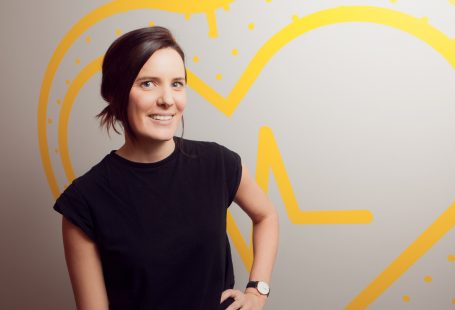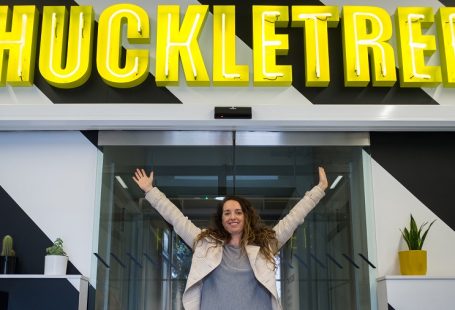I’m excited to tell you that I have settled down in a location just outside Ubud in a tiny village in Bali for a while and so now I am ready to officially start my creative sabbatical. I realised that quite a few people I spoke to were not entirely sure what a creative sabbatical is, so I decided to create a bit of an overview. I’ve covered what a creative sabbatical is, the bizarre story of how I ended up doing one, why I think it’s such a good idea to plan in creative time to be able to future proof yourself for work, and lastly how I announced it to my clients, family and wider network. I do hope you find it useful.
The bizarre yet true story of how I ended up in Bali doing a creative sabbatical
A few years ago, I had an executive coach. I took him on for 6 months to ultimately try and work out why I was so unhappy with my life. Truth be told, I should have got a therapist, as I was distraught with my Dad being so sick at the time, but I took him on. At the time I saw little value in the huge amount of work I was tasked with doing on top of our bi-weekly calls. Every week I was teasing out painful emotional wounds that I’d dampened down over time and had put them on paper so we could talk them through and try to fix them and in turn fix my unhappiness. It was messy, painful, often extremely frustrating and as anyone who has “done the work” will tell you, it’s not a lot of fun.
Afterwards, I realised that I was not in the right headspace or mindset to have a coach, because I was not in a place to activate what I needed to do. And no matter how many people you employ to help you, if you are not in the right place, you can’t be helped. And ultimately I’ve also realised that if you can get yourself into the right headspace or mindset (which you are the only person that can do that anyway) you don’t need a coach. So we did our 6 months and I chalked it up as an interesting experience.
Just as I was packing up to leave my flat in December of 2017 to go Nomadic, I found my notes from the coach. Like I said I had a lot of homework to do each week and he also took prolific notes. I read through all of it out of interest to see what we had been working on and if I’d made progress. I was astonished to find out that everything I had said I’d need to fix in my life, I’d pretty much fixed. The list of goals that I’d planned to do within a 3-year period I was well on my way to completing within a much shorter time. I was kind of shocked and proud as I’d written down these dreams and then actually forgotten about them, but somehow, I’d planted the seeds and my subconscious must have been working on a way for me to see them through.
I specifically wrote down that I wanted to be in Bali by March 2018 and working on new creative ideas away from my current industry.
In February 2018 I was in London for a while and was greatly disillusioned after having done a month as a digital nomad in Gran Canaria. I was looking for somewhere to go next and I really wanted to go to Bali, but I was worried about the time difference and working. I was staying with a friend and her daughter to help her pack up her London life too. One day the daughter, Natasha came home and said that she had planned a trip to Bali and that she wanted to go there for almost 3 weeks to rest and recuperate. I asked her if she had planned it all and the cost. It was within my cost of living that I had planned out per month for travelling and working. So I said I’m coming. Less than two weeks later we were on the plane.
The 6th March 2018 I landed in Bali. Exactly as I had written down and planned ( and then forgotten about) all those years earlier. I took the time off to travel with Natasha and then decided to stay on while she left. By April I had decided I was done with my industry and doing what I was doing for a while, and I needed a break. I put my business on pause and started planning my creative sabbatical. The number of serendipitous events that conspired to get me here was unreal, but now I’m here and on week one of my creative sabbatical and excited for what will come.
That’s the very short version of how I got to be in Bali, on a creative sabbatical, spending time exploring creative pursuits, one of which is writing and this blog. I’ll take you through some of the definitions and the planning needed to start one. It’s probably not as hard or as expensive as you might think.
What is a creative Sabbatical?
A sabbatical is normally something that academic types would take to work on academic type things in centuries past, Many of the world’s great breakthroughs happened during these “breaks”. More recently it’s started to become more commonly used by executives in major organisations such as Microsoft, Samsung or the most famous one is Stefan Sagmeister, who closes his design studio every 7 years to take a break and explore new creative ideas.
Some people take a month, others take many and some people take years. Almost all of the people that I have read about since deciding to take a sabbatical got away from their current environment and went somewhere new. A cottage in the countryside, or a different country. New unfamiliar environments help to stimulate new thought patterns and creativity. If you are interested in learning more in depth there’s an excellent book called Rest which goes into more details on the benefits of rest and there is a whole chapter on sabbaticals.
Where does the term creative sabbatical come from?
The term creative sabbatical I thought I’d coined myself, after I decided that I sorely needed a break, to freely explore new ways of working, new concepts, ideas and ways of earning a living away from the confines my previous life. I knew I needed a lot of time alone and time away from distractions where I could think in freedom away from the confines of daily tasks or work.
Since what I want to do is creative, I decided I would call it a creative sabbatical. I looked it up and found that nope, that was not my idea, but a more established concept, coined I believe by Stefan Sagmeister. I also found he had one of his most successful sabbaticals here in Ubud Bali, which is exactly where I am now ( Yes I found that bizarre too !)
My intention for my sabbatical is to work on personal projects for myself that I want to explore. On my list are video making, podcasting, writing, researching and whatever else comes up. I want to let my ideas run wild, which is one of my favourite things to do. Now I don’t have to fit my concepts into tight little boxes to fit within the confines of my work life, I can be free to explore what I wish.
Should you take a creative sabbatical?
If you feel burned out, with little to no creative inspiration left in you and feeling massively frustrated with everything in the world, with a feeling that you probably need to break free right now, then I would say = hell, yes!
If you have been working nonstop for many years with little break in between that you deserve one. The notion that we should work and work and work like robot machines and still be able to come up with creative ideas in is ridiculous. The last time I took a sabbatical which ended up being 5 years long was 14 years ago. That’s much too long. I believe our brains need a break to refuel, and you can’t do that if you are thinking about work.
Isn’t a creative sabbatical just time off?
Personally, I don’t think that it is. I have a goal that by the end of my sabbatical which I think will be 3-6 months, that I will have come up with a new way of working, a new business idea/s that I can put into action and will have a clearer path into the next stage of my life.
I have a routine that I have created for my creative sabbatical to make the most of it. I’ve been researching the best ways to rest, recuperate, generate ideas and new concepts and will use those every day to move forward. If you watch the Stefan Sagmeister YouTube Video, you will hear that he did have a plan and that the most productive creative sabbaticals that he had were those that did have some structure and form to them.
Of course, if you want to take time off, take time off. I took a month off to travel with some of my friends before I started this sabbatical, but travelling with your friends is not a way to get into deep thinking or deep work, and travelling is actually quite a lot of work in itself. Finding accommodation, a place to eat, how to get to where you want to go next, where to wash your clothes, how to find that thing you desperately need but is nowhere to be found. All that takes brain power and energy and I can tell you from experience, that being on the move and with other people is too consuming.
How to Plan for a creative Sabbatical?
If I look at how my creative sabbatical came together I had subconsciously been planning it for years. At some point, I’d decided to stop going out, buying clothes and not spending money on stupid stuff, and had started saving diligently. I’m sure I don’t need to tell you, but you do need money to live on while you are not working, so stage 1 would be to start saving enough money to live off.
The best way as I mentioned is to do a creative sabbatical somewhere else. Somewhere new, where you will get inspiration. There are many countries in the world to choose from, but if you choose wisely you will be able to find one that has much lower living costs than your own.
You may think I’m lying around a 5-star hotel pool, sipping margaritas and eating delicious platters of seafood, as that is what a dream holiday sounds like. But that is a holiday, that is not real life as I mentioned recently in a post about the realities of digital nomad life.
I’m staying in Bali, outside Ubud, in the countryside on a long-term stay and I have just a room, a bathroom and a balcony. It’s quiet, it’s pleasant and comfortable. I’ve stopped drinking as that is expensive and I’ll be eating local food, so my costs are ¼ of what they were in London maybe less. So yes, I am in an exotic destination, but I’m not living a holiday lifestyle or a luxury lifestyle by any means.
If I were to advise anyone on planning a sabbatical I would suggest you start to look into destinations that you would be keen to live in for some time and then really start looking into the locations, costs, what services are available and how you can live for that time. If you are okay with living basic, then that means you need to save up less money, but if you must have luxuries then, of course, your costs will be much higher. There is no cut and dry answer for everyone, you need to work it all out for you.
Why I don’t regret my 5-year sabbatical in my 20’s, even though it affected my career
Many years ago, I took 5 years out of my marketing career to travel the world and do different things. I taught English, I volunteered, I improved my language skills and learnt how to interact and do business with people in many countries including South America and South-East Asia. You can read more about my travelling life and how I managed to live and work all over the world, in this blog post. When I arrived back in the UK I had a Business Degree, three years of marketing experience at Siemens in Germany and 1 as a manager. I spoke three European languages fluently and had lived and worked internationally.
No one would hire me after that. Why? They had absolutely no idea what to do with me and my skill set. It was so outside any single box that they had to tick off, that they just said no. I applied to hundreds of marketing roles, but because I had not worked on an industrial estate in Slough in marketing in the UK for the last 5 years, in their opinion I was totally useless to them.
And please don’t get me started on the ridiculous notion that I had not worked in their specific industry on their specific product for years before I applied to them. Another load of nonsense as far as I am concerned. I ended up working in a call centre for a few months, then in an investment bank doing admin. And after 6 months I finally got a job in marketing, with much less money and a lower pay grade. I found this thoroughly bizarre and still do to this day. I still can’t get my head around it.
I have no regrets. The lessons I learnt during those 5 years, helped me every single day in my career and running my company. They made me who I am today, so it was so very worth it.
The skills companies are looking now? Hint, you can’t learn them all at work!
Thank goodness times are changing. The world is different and the key skills that employers and clients are looking for now and in the future are very different. Creativity is much more highly ranked, as is critical thinking, emotional intelligence and negotiation. This is not my picture of what’s becoming sought after, I’ve been hearing head-hunters talk about these desirable skills for years. Business insider published the list of the top 10 skills from the world economic forum in Jan.
A lot of these skills you may not be able to pick up in the workplace, but you can from trying different things outside of work, being curious and putting yourself in different and new situations. Do you want to know how I learnt to negotiate with Europe’s top retailers? Not in a sales negotiation programme, nope! I learnt how to negotiate by living in South America and South East Asia. If I wanted to buy anything or do anything at all, in those countries everything would involve a negotiation. In South America, I lived off less than 80 USD a week, so I had to negotiate hard as otherwise I could not eat or do or the things I wanted to. If I did not negotiate like my life depended on it, I would not have enough to eat, literally. And so that’s how I learnt!
Not everything has to be handed to you on a plate in an organised course, paid for by your company. If you really want to learn skills to future proof your life. Many companies don’t train and often what they want you to train in, is not what you want to learn. So look outside the expensive courses and consider other ways to train yourself, just like I did with negotiating!
HOW DID I ANNOUNCE MY CREATIVE SABBATICAL TO MY CLIENTS?
As I have my own company, it was not so complicated for me. I had to tell my clients what I was doing, who were incredibly understanding and then I spend a week or so writing them a hand over manual and then we were done. Again, subconsciously I’d been planning this sabbatical for a long time, so I’d got a lot of things in place for my clients, so it was easy for me to walk away and leave them in a good place.
Unless the people you work with are complete assholes or treating you badly in some way I think it’s always best to leave on good terms, as for one it’s good karma, which I am a big believer of and two you really do never know anyone will pop up again or whether you will want to work together in the future.
How did I announce my creative sabbatical to everyone else?
Obviously, I told my friends and family via calls and skype personally and they were all incredibly supportive of the idea. The main feedback I got is that I will be successful in whatever I do as I have a lot of determination and drive. Those comments I have kept and in fact even written down, to look at in moments of feeling less secure. They really meant a lot to me. I think it’s easy to forget all the things we have achieved when we are in the thick of it.
For the wider friendship group, my peers and followers on the different social media groups, I decided to make a video. Video is one of my biggest fears and this sabbatical is all about breaking through them, so I decided to just do it! It was a lot more fun and easier than I thought, once I’d worked out my set up and worked out where to look etc. My plan is to make more videos on my sabbatical, so do sign up to the YouTube, as I’ll be adding more up soon.
You can the short announcement video I made below:
I do hope this has inspired you to think about a creative or any kind of sabbatical. I’d love to hear from anyone who has done it before and what your experiences were and of course any tips!
# Please note that I am not advocating life coaching in this article. I am just telling you the story as it happened. If you feel depressed or without hope, please go to your doctor or get therapy from a licensed therapist. Life coaching was good for me to organise my thoughts each week, but I also believe journalling can be just as useful.




